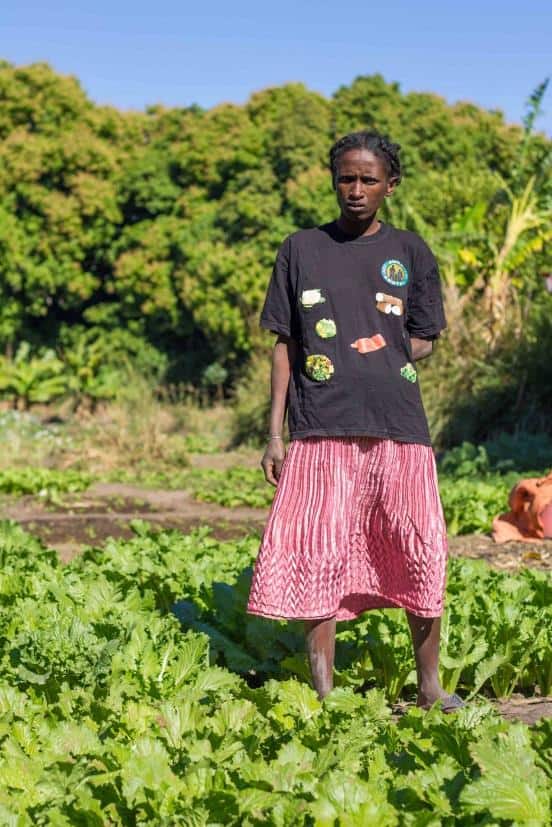Standing in the middle of an endless field of vegetables, Maro Jeanine recalls how her village was years ago. “Before, we spent a lot to take our children to the doctors, as they often got sick. Usually, we only ate cassava throughout the day,” she explains.
Due to a lack of food, resulting from a poor knowledge of good nutrition practices on the one hand, and poor agricultural techniques on the other hand, malnutrition and poor health affected a large number of households in the village of North Andoharano, Lazarivo Commune, in South Betioky District. Children were affected especially hard.
Upon arrival in this community, the ASOTRY project, through Action Intercoopération Madagascar (AIM), implemented strategies to improve the health and nutrition of women and children. The strategies included increasing agricultural production through FFS (Farmer Field School), and promoting Nutrition Essential Actions through Community Health Agents and Lead Mothers.
Maro Jeanine, a Community Health Volunteer (CHV), and fifteen Lead Mothers of Andoharano are among those who have received training on homestead gardening, and on proper nutrition from the project.
“Before the ASOTRY Project, our knowledge was limited. The quality and quantity of our productions were very low. Now that we have received various trainings, everything has changed,” says Maro Jeanine.
“Before, we worked in gold quarries. We walked up to 5 km a day, we worked under the burning sun, our knees were sore, yet we could hardly find a few gold powders for a whole day, which only costs about 2,000 MGA. Some women go back home with empty pockets,” she says.

Today, they grow vegetables of all kinds such as carrots, onions, green leaves, tomatoes, and chives on a vegetable garden of 1 hectare. The women work together with the support of their husbands to maintain this large garden. “While women are planting, men help with watering, and help them sell the products at the commune’s market,” says Maro Jeanine’s husband.
Now, they have the knowledge and the products to feed their families with a healthy and diversified diet. “Families eat three times a day; they are protected from food insecurity. Before, we ate cassava all the time, now mothers know how to balance the diet by adding other produce,” says Maro Jeanine.
In addition, they have a variety of ingredients to prepare different recipes during the cooking demonstration sessions called “Tsikonina” within their CARE Group, where women learn how to prepare nutritious and balanced meals for their children.
Vegetable crops provide a regular source of income for Maro Jeanine and the mothers. “We sell our vegetables at the Lazarivo market. A bunch of green leaves costs 500 MGA. Each day, we earn at least 10,000 MGA, sometimes we earn up to 100,000 MGA per week,” explains Maro Jeanine.
Women can even make savings, by depositing some of their profits in their Village Savings and Loans group (VSL), an association set up by the project. “By the end of the cycle, we gain up to 400,000 MGA. Today, we have a reliable source of income. And we all eat well,” says Maro Jeanine.